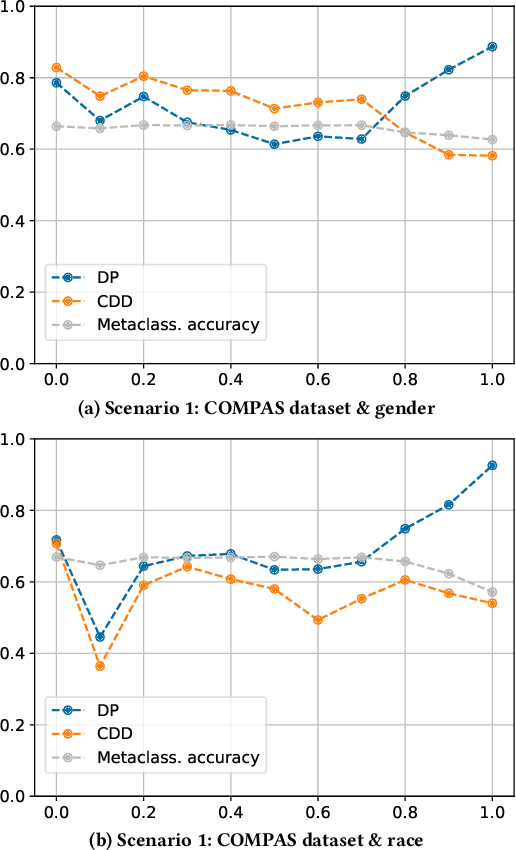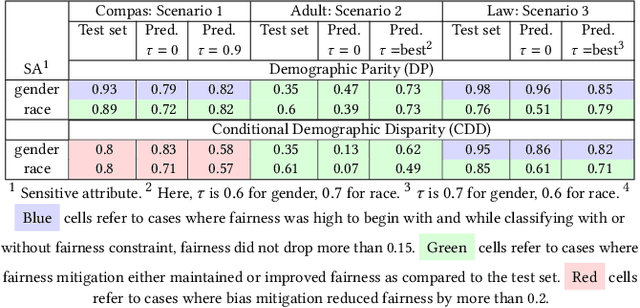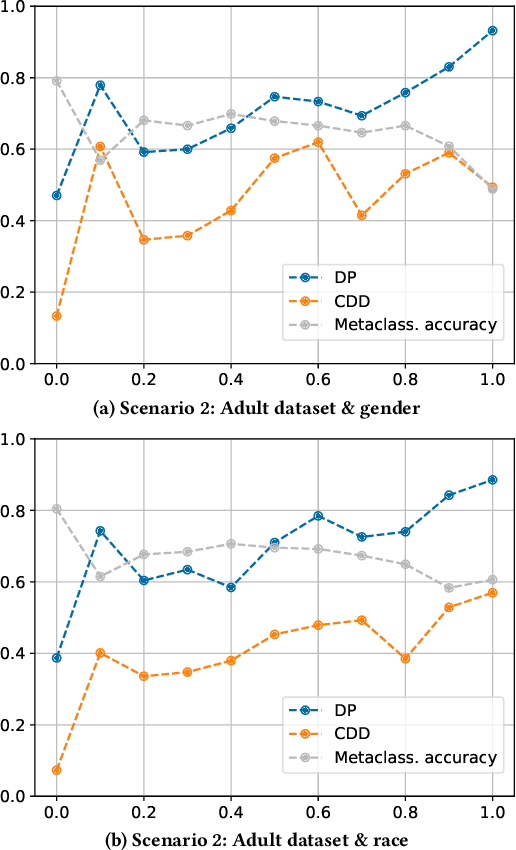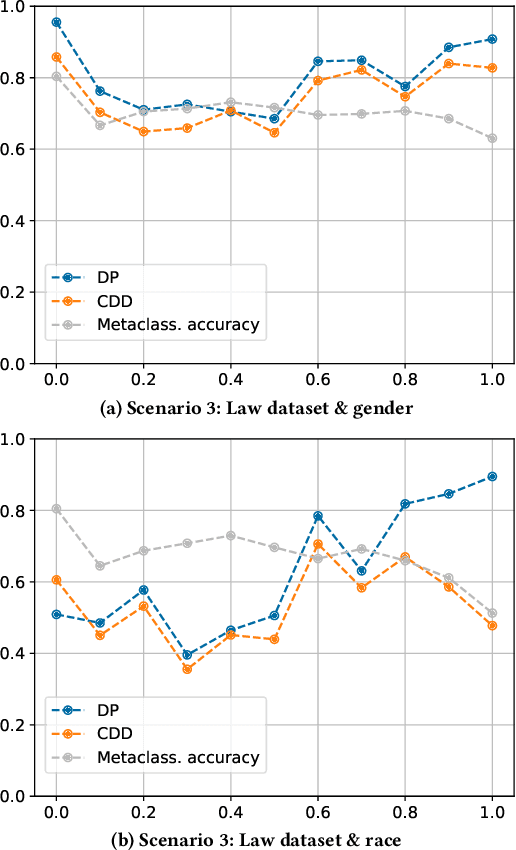Yasaman Yousefi
Compatibility of Fairness Metrics with EU Non-Discrimination Laws: Demographic Parity & Conditional Demographic Disparity
Jun 14, 2023



Abstract:Empirical evidence suggests that algorithmic decisions driven by Machine Learning (ML) techniques threaten to discriminate against legally protected groups or create new sources of unfairness. This work supports the contextual approach to fairness in EU non-discrimination legal framework and aims at assessing up to what point we can assure legal fairness through fairness metrics and under fairness constraints. For that, we analyze the legal notion of non-discrimination and differential treatment with the fairness definition Demographic Parity (DP) through Conditional Demographic Disparity (CDD). We train and compare different classifiers with fairness constraints to assess whether it is possible to reduce bias in the prediction while enabling the contextual approach to judicial interpretation practiced under EU non-discrimination laws. Our experimental results on three scenarios show that the in-processing bias mitigation algorithm leads to different performances in each of them. Our experiments and analysis suggest that AI-assisted decision-making can be fair from a legal perspective depending on the case at hand and the legal justification. These preliminary results encourage future work which will involve further case studies, metrics, and fairness notions.
 Add to Chrome
Add to Chrome Add to Firefox
Add to Firefox Add to Edge
Add to Edge